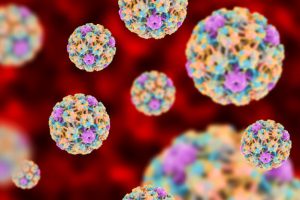 In a recent study of a two-year period, scientists found that nearly one-quarter of US adults, between the ages of 18 and 59, had a type of genital human papillomavirus (HPC) which puts them at a higher risk for developing certain cancers.
In a recent study of a two-year period, scientists found that nearly one-quarter of US adults, between the ages of 18 and 59, had a type of genital human papillomavirus (HPC) which puts them at a higher risk for developing certain cancers.
This is according to a report, published on Thursday, but the United States Centers for Disease Control and Prevention.
Looking back a little further, the stats jump to more than 42 percent (between 2013 and 2014). Now, in both of these groups, HPV prevalence was higher among men than among women and was also found in higher prevalence among black people than any other racial/ethnic group.
Yes, HPV is a major concern; after all, CDC estimates suggest approximatley 80 million people in the United States are infected with the disease, with 14 million new infections reported every year—among teenagers and adults. Now, most of these infections will go away on their own and often do not even cause any symptoms.
Unfortunately, there are some HPV strains that can lead to the development of genital warts and some forms of cancer. Every year, 31,000 adults in the United States are diagnosed with a form of cancer caused by HPV. Sadly, the CDC says that most of these cases probably could have been prevented with the HPV vaccine.
And when it comes to the HPV vaccine, the CDC actually recommends vaccinations for youth at the ages of 11 and 12 so that they develop some protections before they are potentially exposed to the virus when they become sexually active (hopefully years later).
Of course, it is important to remember there are 40 types of HPV and the vaccines only contain the four most common but are still generally effective at stopping overall infection. At the same time, HPV vaccination rates still remain quite low.
